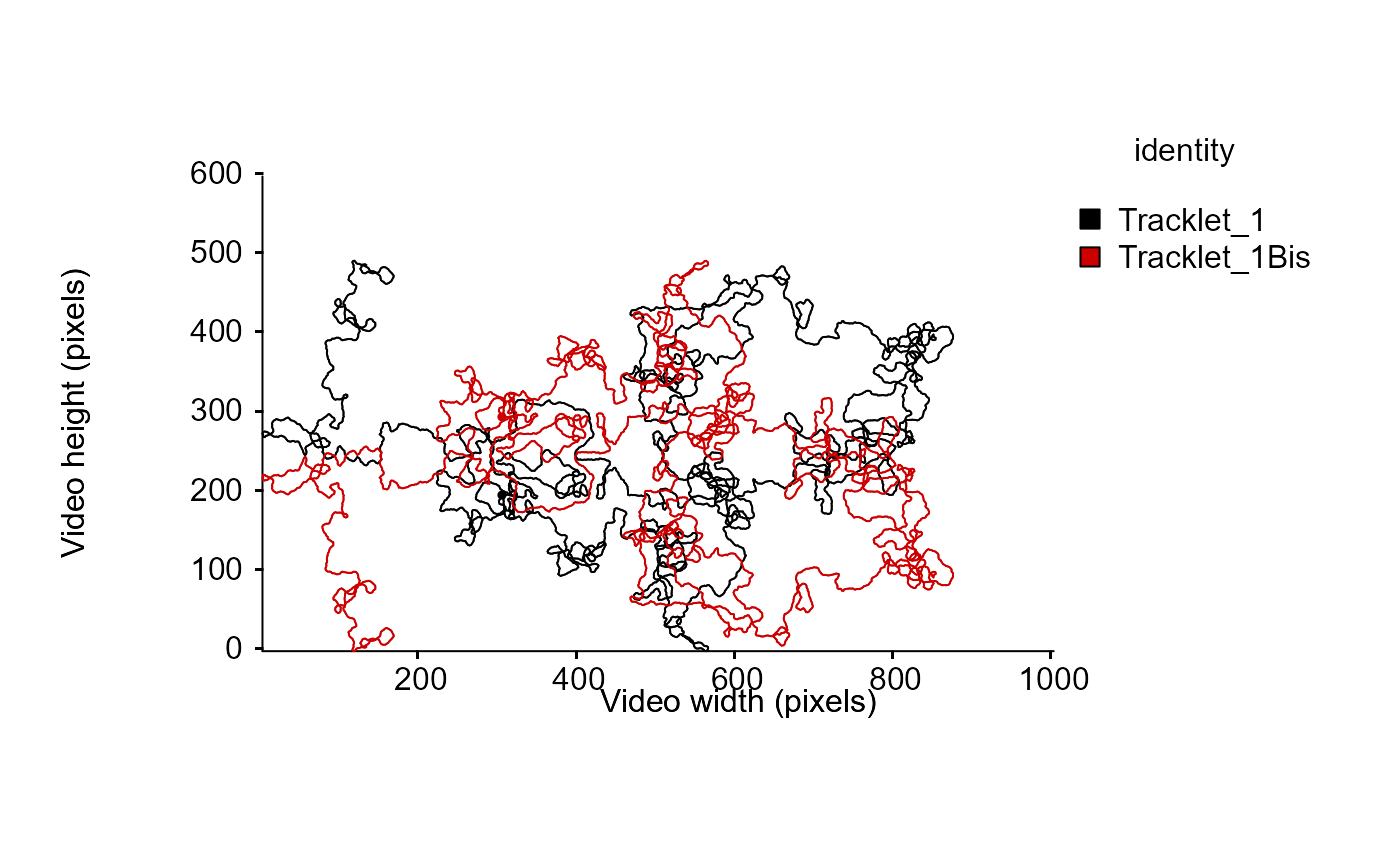Given a vector containing the y coordinates of detected particles and image height, this function returns flipped y coordinates.
Arguments
- YCoords
A vector containing y coordinates for some particles.
- imgHeight
A numeric value expressed in pixels indicating the length of the Y axis (i.e., the height of the image or video).
Examples
set.seed(2023)
# generate some dummy tracklets
## start to specify some parameters to generate tracklets
TrackN <- 1 # the number of tracklet to simulate
TrackL <-
10000 # the length of the tracklets or a sequence to randomly sample tracklet length
id <- 0
TrackList <- MoveR::trackletsClass(stats::setNames(lapply(lapply(seq(TrackN), function(i)
trajr::TrajGenerate(sample(TrackL, 1), random = TRUE, fps = 1)), function(j) {
id <<- id + 1
data.frame(
x.pos = j$x - min(j$x),
y.pos = j$y - min(j$y),
frame = j$time,
identity = paste("Tracklet", id, sep = "_")
)
}), seq(TrackN)))
# convert the list of tracklets to a simple list of variables
trackDatList <- MoveR::convert2List(TrackList)
# find the maximum value on the y axis (corresponding to image Height)
imgHeight <- max(trackDatList[["y.pos"]], na.rm = T)
# use flipYCoords to flip y coords
trackDatList[["y.pos"]] <-
MoveR::flipYCoords(trackDatList[["y.pos"]], imgHeight = imgHeight)
# rename the identity of the flipped tracklet by adding "bis"
trackDatList[["identity"]] <-
gsub("$", "Bis", trackDatList[["identity"]])
# convert the new dataset to a list of tracklet
trackDatList <- trackDatList[-length(trackDatList)]
trackDatflipped <-
MoveR::convert2Tracklets(trackDatList, by = "identity")
# draw the result
# here we can see that both trajectory are flipped, with the original trajectory
# drawed in black and the flipped one in red
MoveR::drawTracklets(MoveR::trackletsClass(c(TrackList, trackDatflipped)),
colId = "identity")
